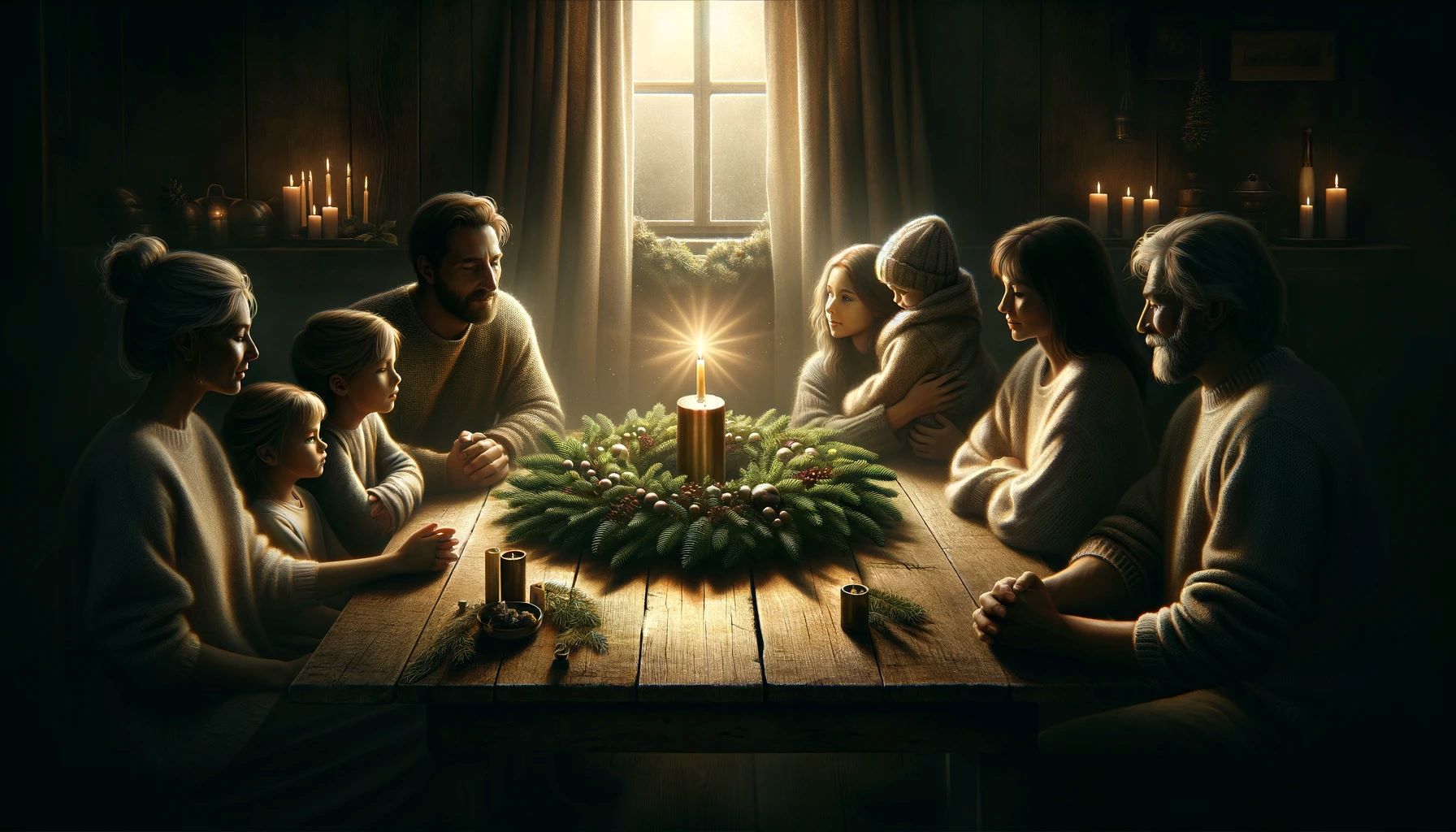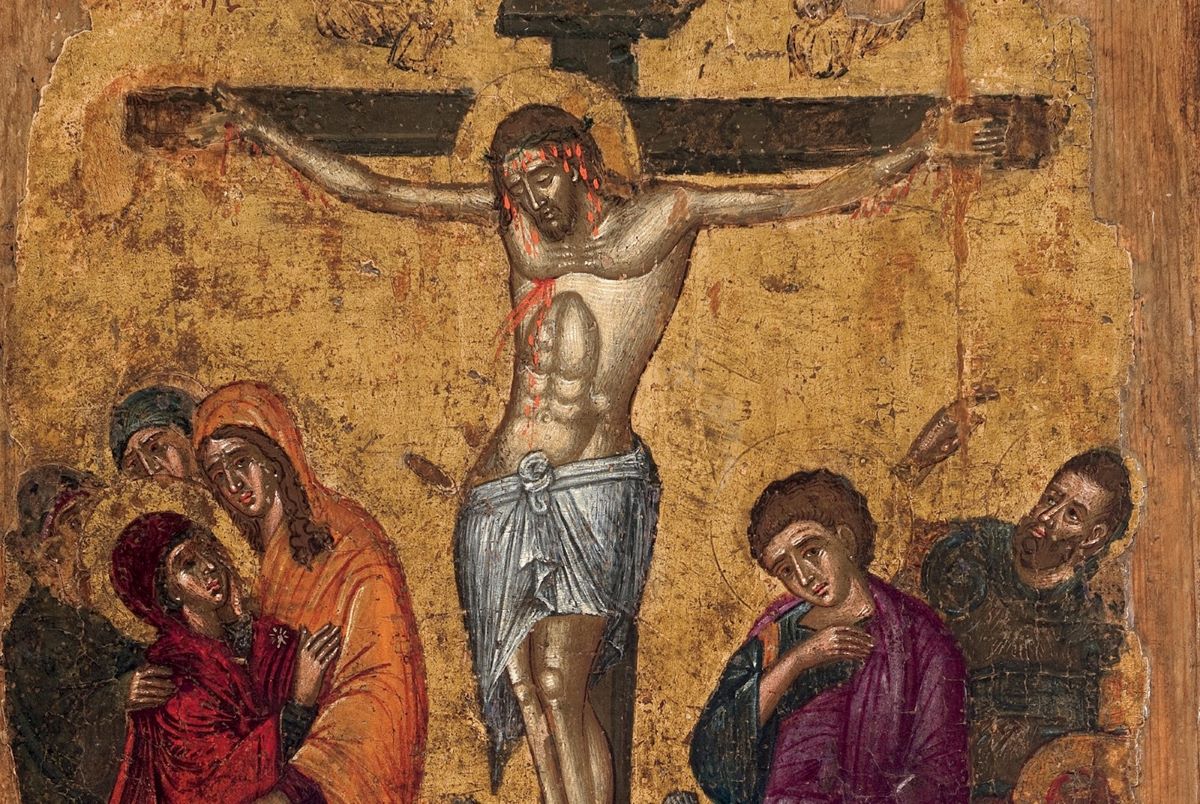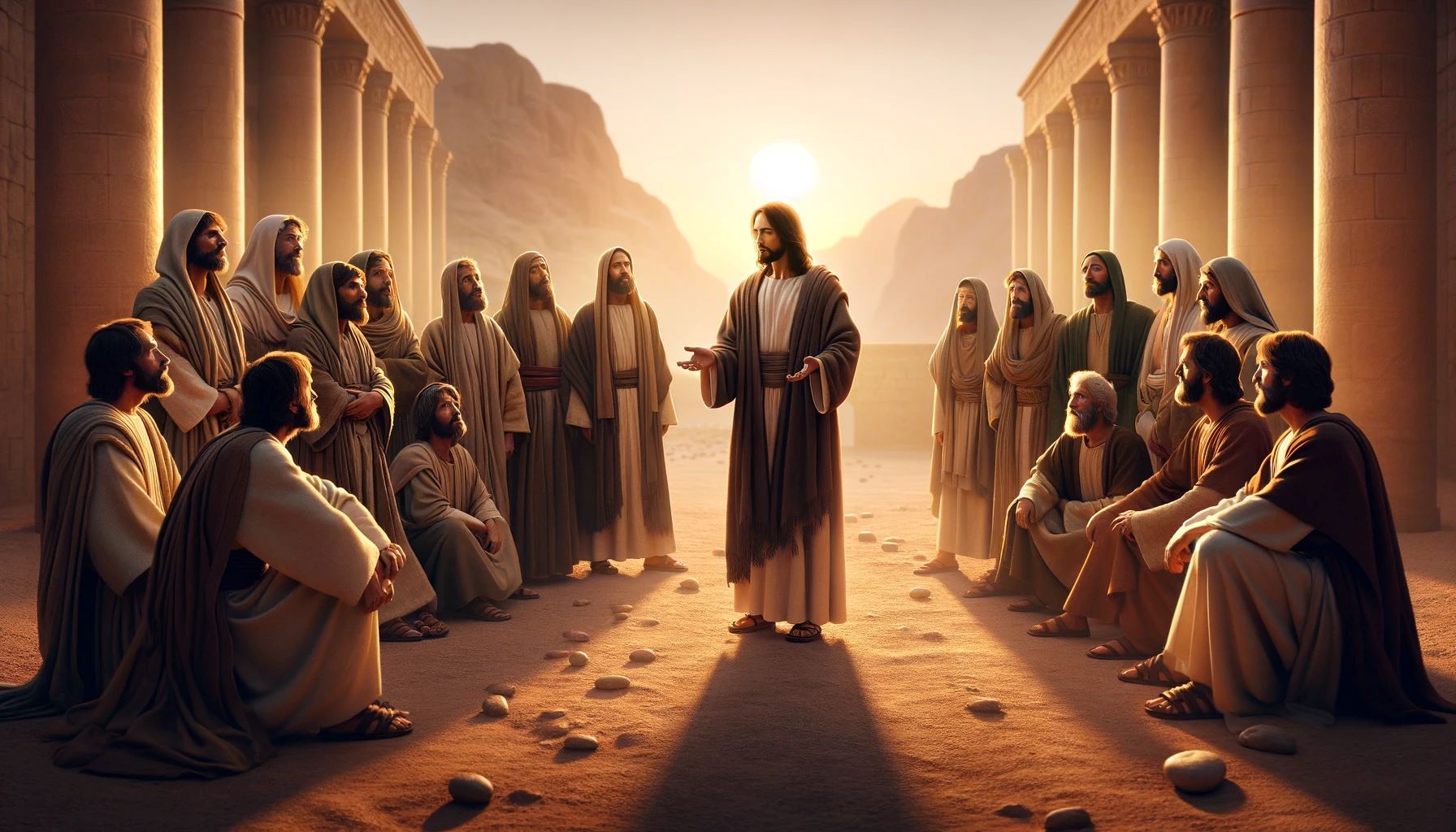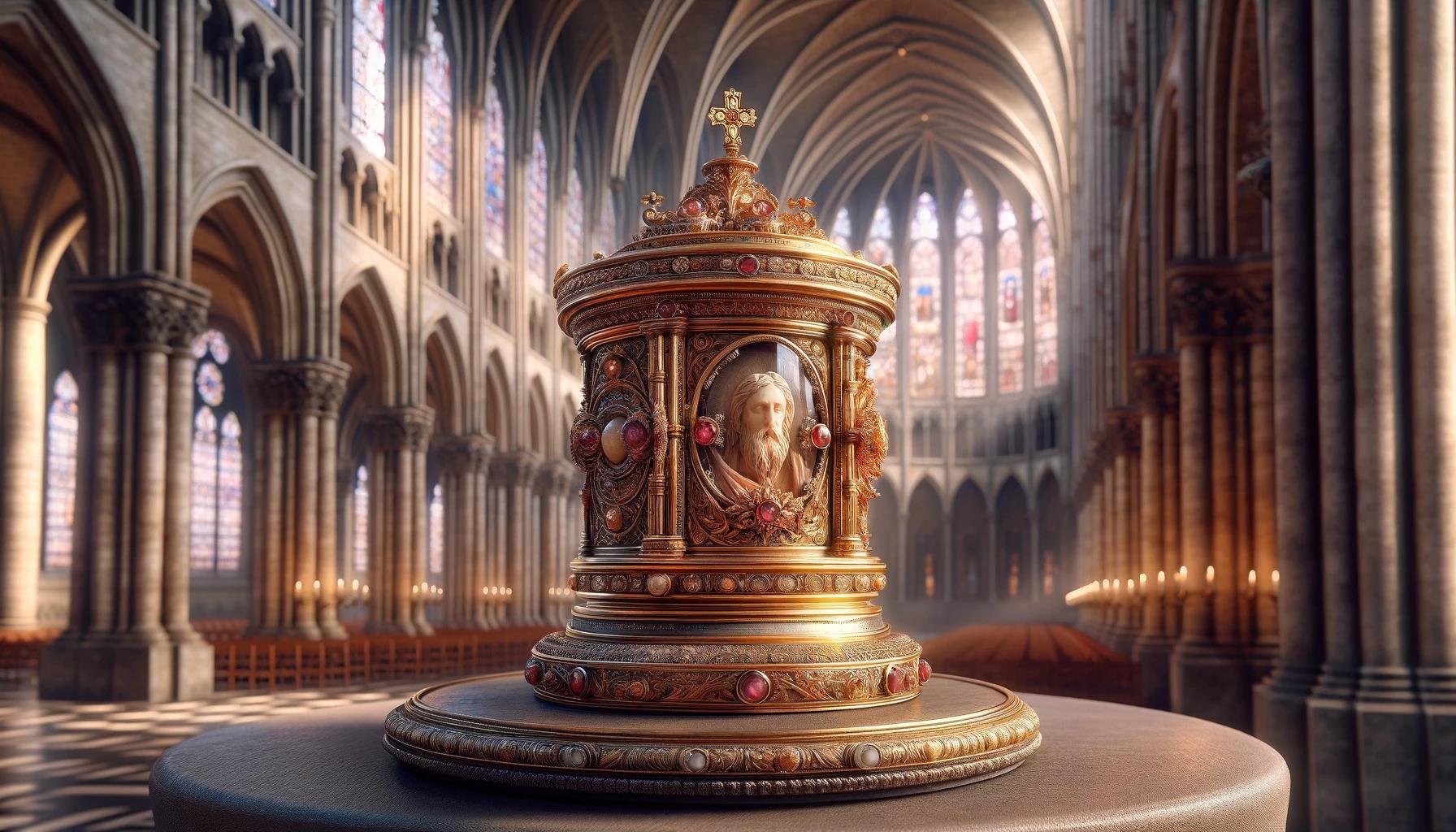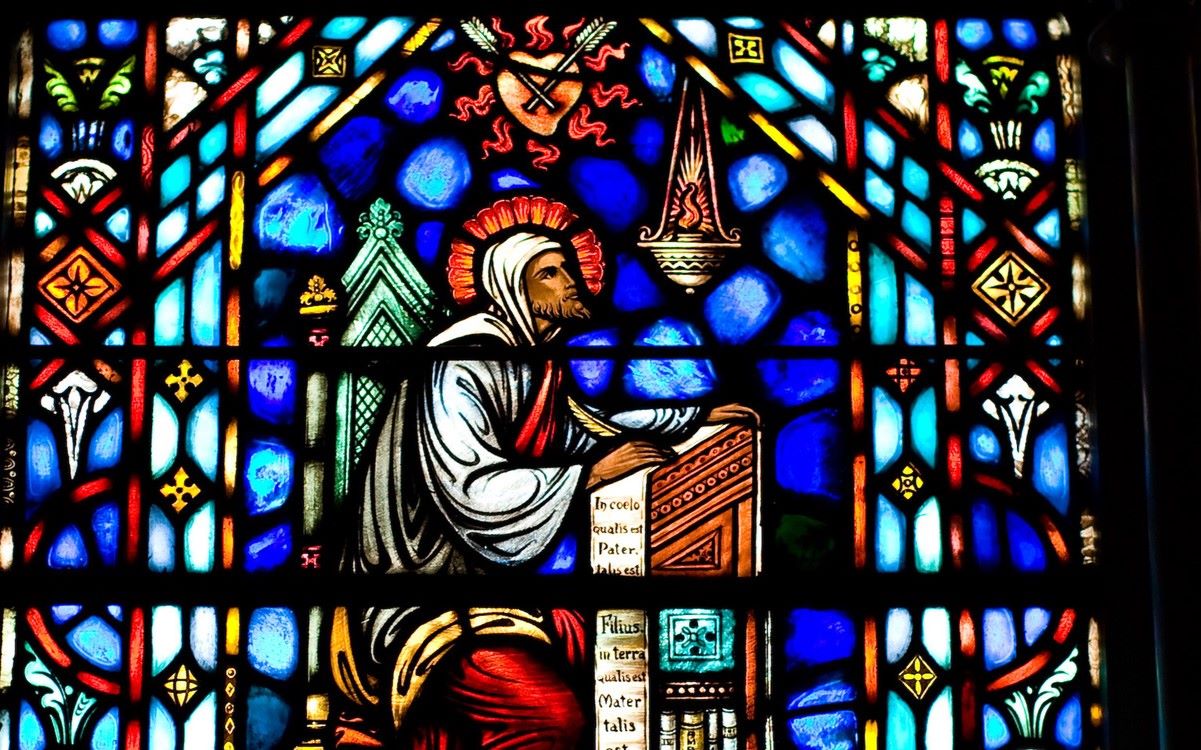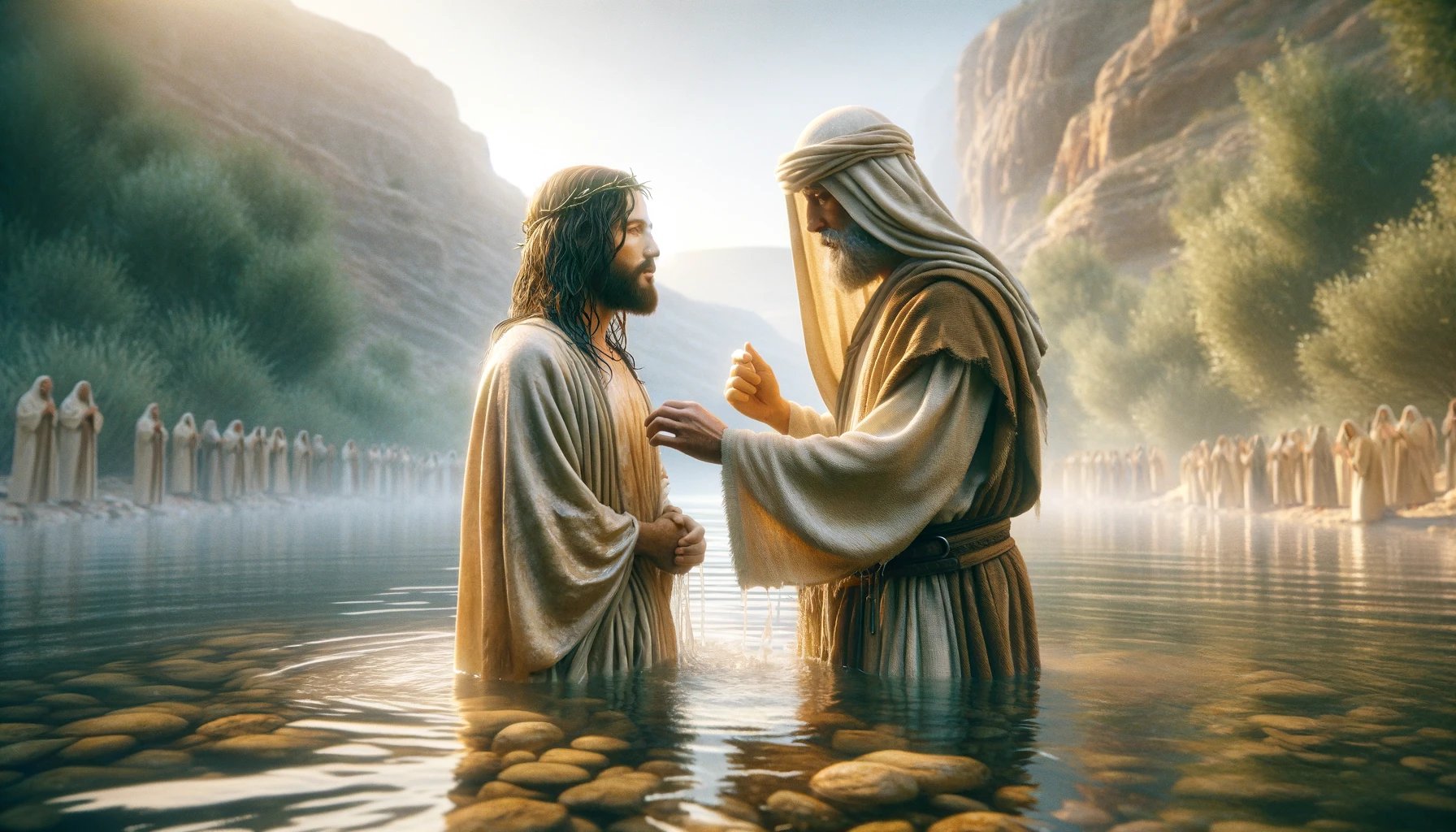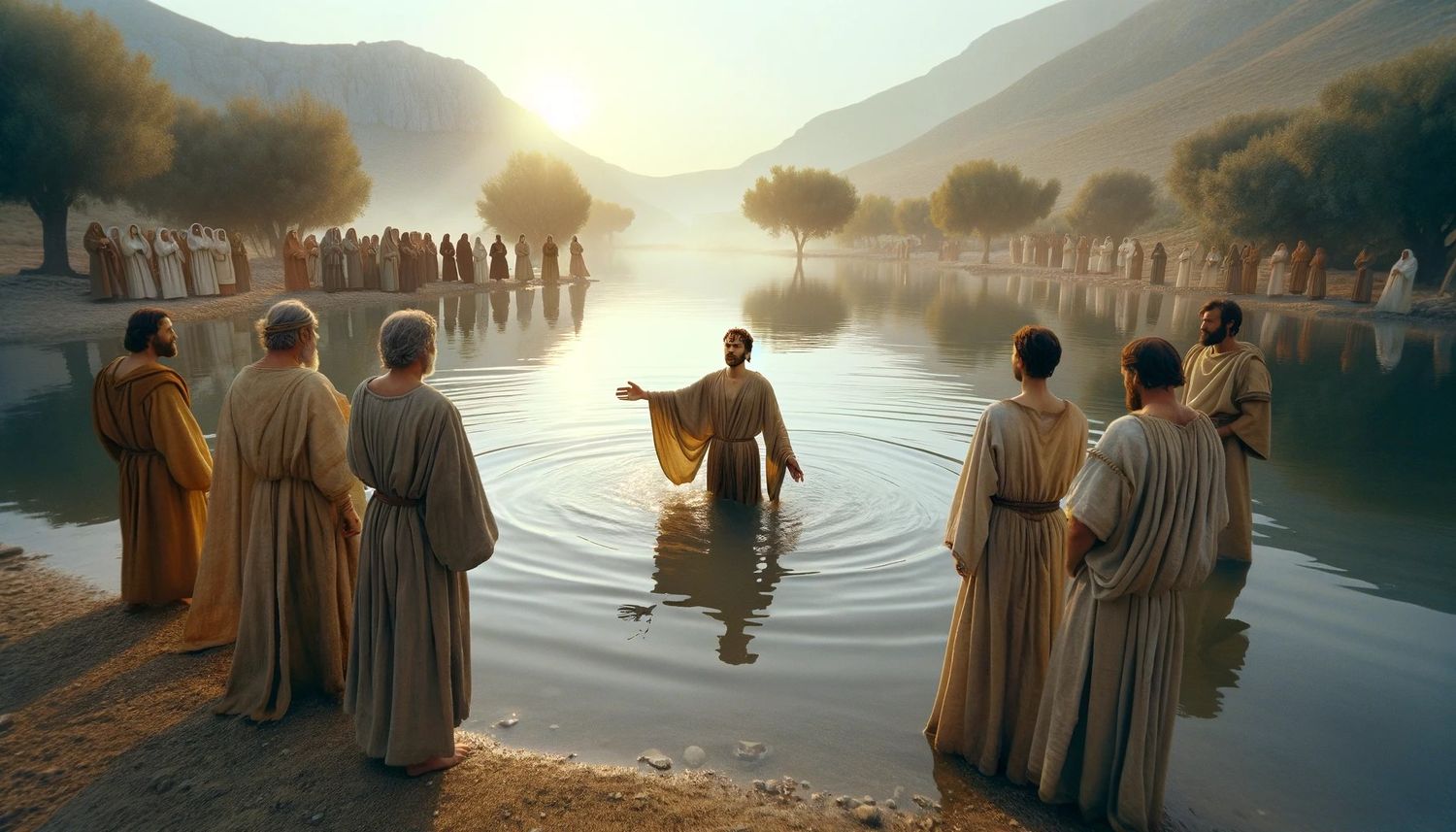Home>Theology and Spirituality>Why Is Passover Important To Catholicism


Theology and Spirituality
Why Is Passover Important To Catholicism
Published: February 15, 2024
Ericka Andersen, an editor at Christian.net, expertly merges digital strategy with content creation, focusing on faith and societal issues. Her communication skills enhance the platform's engaging narratives, fostering meaningful dialogue on belief's impact on society.
Discover the significance of Passover in Catholic theology and spirituality, and its importance in the faith's traditions and beliefs. Explore the deep-rooted connections and spiritual meanings.
(Many of the links in this article redirect to a specific reviewed product. Your purchase of these products through affiliate links helps to generate commission for Christian.net, at no extra cost. Learn more)
Table of Contents
Introduction
Passover holds profound significance in Catholicism, serving as a cornerstone of the faith's theological and spiritual tapestry. This ancient Jewish festival, also known as Pesach, commemorates the liberation of the Israelites from slavery in Egypt and their exodus under the leadership of Moses. In Catholicism, the observance of Passover is deeply intertwined with the narrative of salvation history, offering a rich tapestry of symbolism and tradition that resonates throughout the liturgical calendar.
The celebration of Passover in Catholicism is a testament to the interconnectedness of the Old and New Testaments, illustrating the continuity and fulfillment of God's covenant with His people. As such, delving into the historical significance, symbolism, traditions, and rituals associated with Passover provides a profound understanding of its importance within the framework of Catholic theology and spirituality. This exploration unveils the intricate layers of meaning that enrich the Catholic faith, shedding light on the profound connections between the Old Testament roots of Christianity and its fulfillment in the New Testament.
The significance of Passover in Catholicism extends beyond historical remembrance; it encapsulates the essence of redemption, liberation, and the enduring covenant between God and humanity. As we embark on this journey to unravel the depth of Passover's importance in Catholicism, we will uncover the profound spiritual truths and timeless relevance that continue to shape the faith of millions around the world.
Read more: Why Is Lent Important
Historical significance of Passover in Catholicism
The historical significance of Passover in Catholicism is rooted in the foundational narratives of the Old Testament, particularly the Book of Exodus. This sacred festival commemorates the Israelites' liberation from slavery in Egypt, a pivotal event that marked the beginning of their journey to freedom and the establishment of a covenant with God. In Catholic theology, this historical exodus holds profound significance as it foreshadows the ultimate liberation from sin and death through the redemptive work of Jesus Christ.
The Exodus narrative, with its themes of deliverance, divine intervention, and the establishment of a chosen people, serves as a powerful backdrop for understanding the historical significance of Passover in Catholicism. It underscores the enduring faithfulness of God to His people and His unwavering commitment to leading them from bondage to freedom. This narrative not only resonates with the collective memory of the Jewish people but also forms an integral part of the Christian understanding of salvation history.
Within the Catholic tradition, the historical significance of Passover is intricately woven into the fabric of the liturgical calendar, serving as a foundational element that informs the celebration of Easter. The parallel between the Passover lamb's blood, which spared the Israelites from the angel of death, and the sacrificial death of Jesus Christ, often referred to as the "Lamb of God," is a central tenet of Catholic theology. This connection underscores the profound continuity between the Old Testament foreshadowing and the New Testament fulfillment, emphasizing the redemptive significance of Christ's sacrifice.
Furthermore, the historical significance of Passover in Catholicism extends beyond a mere commemoration of past events; it serves as a living testament to the enduring faithfulness of God and His ongoing work of liberation in the lives of believers. The Exodus narrative continues to inspire hope, resilience, and trust in God's providence, resonating with Catholics as they navigate their own journeys from bondage to spiritual freedom.
In essence, the historical significance of Passover in Catholicism encapsulates the timeless themes of liberation, covenant, and divine intervention, offering a profound lens through which to understand the unfolding drama of salvation history. It stands as a testament to the enduring relevance of ancient narratives and their transformative impact on the faith and identity of Catholic believers.
The symbolism of Passover in Catholicism
The symbolism of Passover in Catholicism transcends mere historical commemoration; it embodies profound spiritual truths and theological significance that resonate deeply within the faith. At its core, Passover symbolizes the themes of liberation, redemption, and covenant, weaving a rich tapestry of meaning that reverberates throughout Catholic theology and spirituality.
One of the central symbols of Passover in Catholicism is the Paschal lamb, which harkens back to the sacrificial lamb of the Old Testament. This imagery finds its fulfillment in the person of Jesus Christ, often referred to as the "Lamb of God" in Catholic tradition. The sacrificial lamb, whose blood spared the Israelites from the angel of death during the original Passover, serves as a powerful foreshadowing of Christ's redemptive sacrifice on the cross. This symbolism underscores the profound connection between the Old Testament prefigurations and their fulfillment in the New Testament, highlighting the continuity of God's salvific plan throughout history.
Moreover, the unleavened bread, or matzah, central to the Passover Seder, carries deep symbolic significance within Catholicism. This unleavened bread, which recalls the haste with which the Israelites departed from Egypt, serves as a potent symbol of purity and sincerity. In the Catholic Eucharist, the unleavened bread takes on added layers of meaning, representing the body of Christ broken for the salvation of humanity. The parallel between the Passover matzah and the Eucharistic bread underscores the profound continuity between the Old Testament typology and its fulfillment in the sacramental life of the Church.
The act of partaking of bitter herbs during the Passover Seder also holds symbolic weight within Catholicism. These bitter herbs, signifying the bitterness of slavery, serve as a poignant reminder of the hardships endured by the Israelites in Egypt. In the Catholic context, the bitter herbs evoke the recognition of human suffering and the longing for liberation from the bitterness of sin and injustice. This symbolism resonates deeply with the Catholic understanding of the human condition and the yearning for spiritual freedom and renewal.
In essence, the symbolism of Passover in Catholicism encompasses a rich tapestry of imagery and meaning, weaving together the threads of ancient traditions and theological truths. It serves as a powerful reminder of God's faithfulness, the redemptive work of Christ, and the enduring covenant between God and His people. This symbolism infuses the Catholic faith with depth and resonance, offering believers a profound connection to the timeless truths encapsulated in the observance of Passover.
Passover traditions and rituals in Catholicism
Passover traditions and rituals in Catholicism are deeply rooted in the rich tapestry of Jewish heritage and the theological significance of the Passover narrative. While the observance of Passover is inherently a Jewish tradition, its resonance within Catholicism is manifested through the lens of the New Testament and the sacramental life of the Church.
One of the central Passover traditions in Catholicism is the commemoration of the Last Supper, where Jesus Christ instituted the Eucharist, transforming the Passover meal into the sacramental celebration of the Mass. This profound connection between the Passover Seder and the Eucharistic liturgy underscores the continuity between the Old Testament foreshadowing and its fulfillment in the New Testament. The Passover meal, with its rituals and symbols, serves as a foundational backdrop for understanding the sacramental life of the Church, particularly the Eucharist, which lies at the heart of Catholic worship and spirituality.
The ritual of partaking of unleavened bread, or matzah, during the Passover Seder finds its parallel in the Catholic Eucharist, where the consecrated host becomes the body of Christ. This symbolic act of consuming the unleavened bread underscores the spiritual nourishment and unity with Christ that lies at the core of Catholic communion. The continuity between the Passover tradition of eating unleavened bread and the Catholic ritual of receiving the Eucharist highlights the profound interconnectedness of these sacred observances.
Furthermore, the Passover tradition of recounting the Exodus narrative and the recitation of the Haggadah, the text that guides the Seder ceremony, finds resonance within Catholicism through the liturgical readings and prayers that accompany the celebration of the Eucharist. The retelling of salvation history, the recollection of God's mighty deeds, and the proclamation of faith are integral aspects of both the Passover Seder and the Catholic liturgy, underscoring the shared emphasis on remembrance, thanksgiving, and communal worship.
In essence, the Passover traditions and rituals in Catholicism serve as a testament to the enduring legacy of the Exodus narrative and its profound impact on the spiritual life of the Church. The observance of Passover within the Catholic tradition not only fosters a deep appreciation for the interconnectedness of Old Testament typology and New Testament fulfillment but also enriches the sacramental tapestry of Catholic worship, offering believers a profound connection to the ancient roots of their faith.
Passover and the Last Supper
The profound connection between Passover and the Last Supper lies at the heart of Catholic theology and spirituality, illuminating the intricate interplay between the Old Testament foreshadowing and its fulfillment in the New Testament. The Last Supper, a pivotal event in the life of Jesus Christ, serves as the transformative moment when the Passover meal was imbued with new meaning and significance, laying the foundation for the sacramental life of the Church.
As Jesus gathered with his disciples to partake in the Passover meal, he infused this ancient ritual with profound theological import. The unleavened bread, central to the Passover Seder, took on new significance as Jesus broke it and declared, "This is my body, which is given for you" (Luke 22:19). In this moment, the symbolism of the Passover matzah was transformed, becoming the enduring symbol of Christ's self-offering for the salvation of humanity. The act of partaking of the bread, now imbued with the presence of Christ, became the cornerstone of the Eucharistic celebration in Catholic tradition, uniting believers with the sacrificial love of Christ.
Similarly, the cup of wine, an integral part of the Passover Seder, became the vessel through which Jesus imparted a new covenant, declaring, "This cup that is poured out for you is the new covenant in my blood" (Luke 22:20). The symbolism of the Passover wine, representing joy and redemption, was reinterpreted by Jesus as the symbol of his own blood, poured out for the forgiveness of sins and the establishment of a new and everlasting covenant. This profound transformation of the Passover cup laid the groundwork for the sacramental significance of the Eucharistic wine in Catholic liturgy, signifying the outpouring of Christ's redemptive love and the communal participation in the new covenant.
The Last Supper, therefore, stands as the bridge between the ancient traditions of Passover and the sacramental life of the Church. It encapsulates the continuity between the Old Testament typology and its fulfillment in the person of Jesus Christ, underscoring the profound interconnectedness of salvation history. The Last Supper not only serves as a testament to the enduring legacy of Passover but also offers believers a profound connection to the redemptive work of Christ, inviting them to partake in the eternal banquet of the Kingdom of God.
In essence, the convergence of Passover and the Last Supper within the Catholic tradition embodies the timeless significance of these sacred observances, weaving together the threads of ancient rituals and the transformative power of Christ's salvific sacrifice. This profound connection serves as a cornerstone of Catholic faith, inviting believers to enter into the mystery of Christ's redemptive love and partake in the eternal Passover feast of the Kingdom.
Read more: Why Are The Gospels Important?
The importance of Passover in Catholic liturgy
The significance of Passover in Catholic liturgy permeates the core of the Church's worship and spiritual life, infusing the sacred rituals with profound theological depth and historical resonance. At the heart of Catholic liturgy lies the Eucharist, the central act of communal worship that finds its roots in the Last Supper, a Passover meal shared by Jesus and his disciples. This foundational connection underscores the intrinsic importance of Passover within the fabric of Catholic worship.
The commemoration of Passover in Catholic liturgy serves as a poignant reminder of the enduring covenant between God and His people, as manifested through the redemptive sacrifice of Jesus Christ. The Eucharistic celebration, which encapsulates the essence of the Paschal mystery, draws upon the rich symbolism and theological significance of Passover, weaving together the threads of ancient tradition and the transformative power of Christ's salvific love.
Moreover, the liturgical observance of Passover in Catholicism fosters a deep sense of continuity with the Old Testament narratives, emphasizing the seamless connection between the Exodus story and its fulfillment in the life, death, and resurrection of Jesus. This continuity underscores the timeless relevance of Passover within the Catholic faith, inviting believers to immerse themselves in the unfolding drama of salvation history and the enduring faithfulness of God.
Furthermore, the importance of Passover in Catholic liturgy extends beyond historical remembrance; it serves as a living testament to the ongoing work of redemption and liberation in the lives of believers. The Eucharistic celebration, with its roots in the Passover meal, becomes a sacred moment of encounter with the living Christ, inviting the faithful to partake in the eternal banquet of the Kingdom and to be nourished by the spiritual sustenance offered through the body and blood of Christ.
In essence, the importance of Passover in Catholic liturgy lies in its capacity to enliven the worship of the Church, infusing it with the profound significance of salvation history and the transformative power of Christ's redemptive love. This sacred observance serves as a cornerstone of Catholic spirituality, inviting believers to enter into the mystery of the Eucharist and to partake in the eternal Passover feast, where the liberating grace of God is made manifest in the life of the Church.
Conclusion
In conclusion, the significance of Passover in Catholicism extends far beyond a mere historical commemoration; it embodies the enduring themes of liberation, redemption, and covenant that resonate deeply within the theological and spiritual tapestry of the faith. The historical significance of Passover, rooted in the Exodus narrative, serves as a testament to the enduring faithfulness of God and His ongoing work of liberation in the lives of believers. This ancient festival not only commemorates the Israelites' liberation from slavery in Egypt but also foreshadows the ultimate liberation from sin and death through the redemptive work of Jesus Christ.
The symbolism of Passover in Catholicism weaves a rich tapestry of imagery and meaning, underscoring the profound connection between the Old Testament prefigurations and their fulfillment in the New Testament. The Paschal lamb, unleavened bread, and bitter herbs serve as potent symbols of Christ's sacrificial love, the purity of the Eucharist, and the recognition of human suffering and the yearning for spiritual freedom and renewal, respectively. These symbols infuse the Catholic faith with depth and resonance, offering believers a profound connection to the timeless truths encapsulated in the observance of Passover.
Passover traditions and rituals in Catholicism, while rooted in Jewish heritage, find resonance within the sacramental life of the Church. The commemoration of the Last Supper, the partaking of unleavened bread, and the retelling of salvation history through liturgical readings and prayers serve as a testament to the enduring legacy of the Exodus narrative and its profound impact on the spiritual life of the Church. These traditions foster a deep appreciation for the interconnectedness of Old Testament typology and New Testament fulfillment, enriching the sacramental tapestry of Catholic worship.
The profound connection between Passover and the Last Supper lies at the heart of Catholic theology and spirituality, illuminating the intricate interplay between the Old Testament foreshadowing and its fulfillment in the New Testament. The Last Supper not only serves as a testament to the enduring legacy of Passover but also offers believers a profound connection to the redemptive work of Christ, inviting them to partake in the eternal banquet of the Kingdom of God.
In Catholic liturgy, the importance of Passover permeates the core of the Church's worship and spiritual life, infusing the sacred rituals with profound theological depth and historical resonance. The Eucharistic celebration draws upon the rich symbolism and theological significance of Passover, weaving together the threads of ancient tradition and the transformative power of Christ's salvific love. This observance serves as a cornerstone of Catholic spirituality, inviting believers to enter into the mystery of the Eucharist and to partake in the eternal Passover feast, where the liberating grace of God is made manifest in the life of the Church.
In essence, the observance of Passover in Catholicism encapsulates the essence of redemption, liberation, and the enduring covenant between God and humanity. It stands as a testament to the enduring relevance of ancient narratives and their transformative impact on the faith and identity of Catholic believers, inviting them to immerse themselves in the unfolding drama of salvation history and the enduring faithfulness of God.
